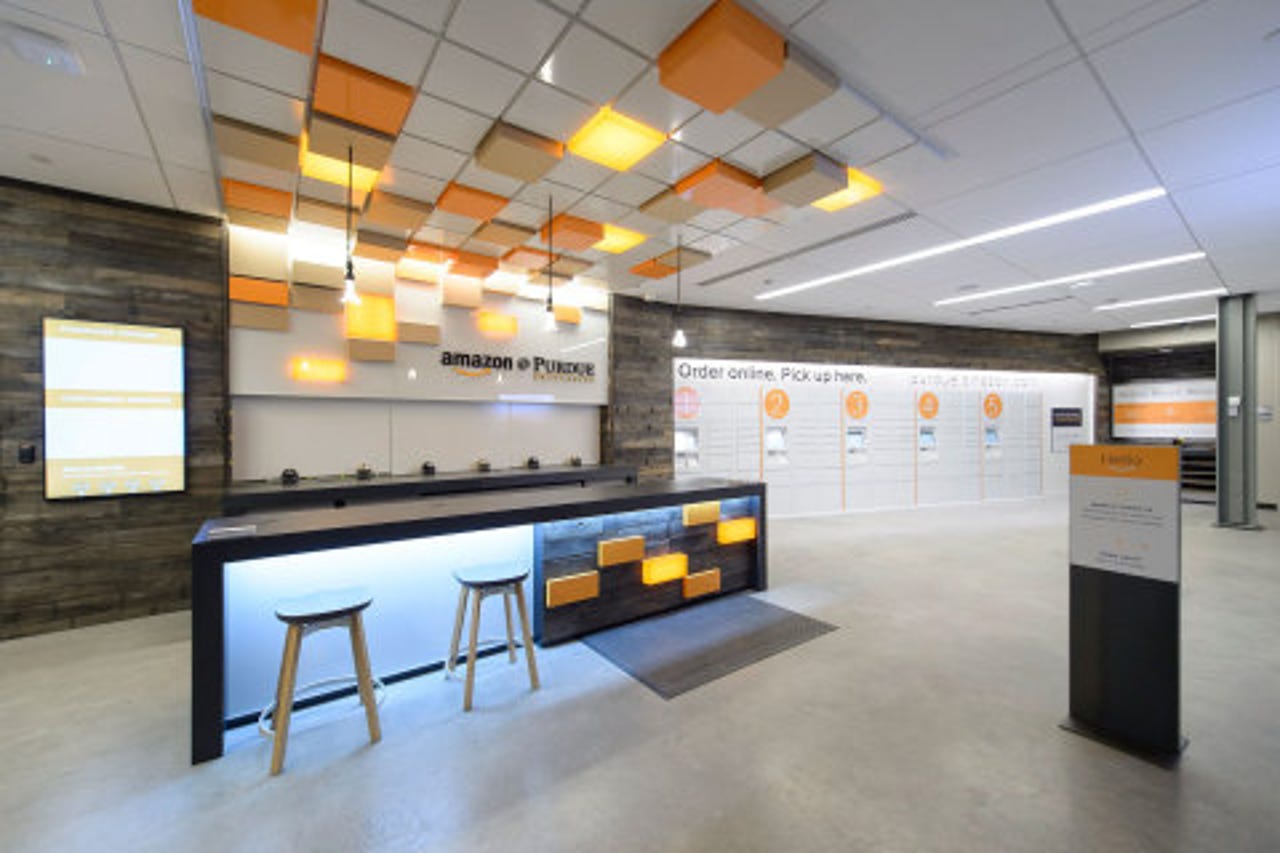Amazon Student: A primer for future shoppers?


If there's one key ingredient to Amazon's long-term success as an e-commerce powerhouse, it's customer loyalty.
And if there's one foolproof way to establish customer loyalty, it's to hook them while they're young.
Enter Amazon@Purdue, Amazon's brick-and-mortar outpost on the Purdue University campus in West Lafayette, Indiana. It's the latest to come out of the Amazon Student initiative, which discounts the perks of Prime for the higher education set.
Generally speaking, the program is designed to give students access to competitively priced textbooks and other college essentials. The location is designed a bit like a post office, with pickup lockers and a staffed counter where students can claim orders they've made online -- so it's not so much a store as it is a thruway for online orders.
For Amazon, the program is strategic on multiple levels. Not only does it lay the groundwork for an inevitable jump into physical retail, but it also has the potential to build brand recognition and loyalty within the coveted Millennial generation.
Featured
"Clearly Amazon's motive is just like why McDonald's created Happy Meals -- to hook a younger generation," said Bob Phibbs, a retail consultant and author of the Retail Doctor blog. "We are told Millennials want it all fast, convenient and without much human interaction. This solves that."
With that in mind, Amazon is likely positioning itself on college campuses in hopes that young shoppers will come to rely on the e-commerce site for everything from simple convenience items to big-ticket purchases. The theory is simple: As these primed college consumers grow up and gain more spending power, shopping via Amazon will come naturally.
And given the magnitude of the 18-34 demographic, that could equal a hefty slice of the consumer pie for Amazon.
"The millennial generation of customers, which includes those in college right now, are going to be the most important generation of consumers our country has ever known," said Micah Solomon, a retail consultant for customer service. "There are more of them than the Baby Boomers and they will soon control a dominant share of purchasing power as well."
The Amazon@Purdue effort is just the beginning of the company's college goals. Amazon says it will soon move onto the campuses of UC Davis and the University of Massachusetts Amherst, with plans to add more universities to the mix down the line.
Beyond the university
If there's one lingering question in all of this, it's what Amazon hopes to become if it does establish a physical footprint.
The university locations make sense, as they enable Amazon to morph into something akin to a convenience store (as long as delivery times continue to shorten). Beyond academia though, the premise of physical Amazon locations has many people flummoxed, especially because Amazon has enjoyed such a huge cost advantage by purposely avoiding them.
Sure, there are Kindles that could be displayed, and potentially other Amazon-branded electronics or household items, but that's not enough to support a chain of retail stores. The most likely scenario is that Amazon will use physical locations to broaden its distribution tentacles. They could serve as hubs for deliveries and returns and perhaps some showcasing of its own items -- similar to what Amazon did when it opened a pilot location in Manhattan last fall.
Now with RadioShack in bankruptcy, there are rumors that Amazon has its eyes on some of RadioShack's defunct retail space. General Wireless is purchasing roughly 2,400 storefronts, leaving around 900 still up for grabs. There's no official indication from Amazon that the rumors have merit, but if there was ever a ripe opportunity to make the brick-and-mortar leap, this would be it.
The other point worth noting here is consumer behavior. According to PwC's annual consumer survey, Total Retail: Retailers and the Age of Disruption, just 27 percent of US consumers shop online on a weekly basis -- which means a majority of shopper dollars are being spent in-store.
"Amazon is the acknowledged king of online commerce, but there are many things about physical commerce that cannot be replicated online," Solomon added.
Amazon is no doubt aware of this trend, but it remains to be seen whether the Amazon experience can be recreated in a physical environment.
More: